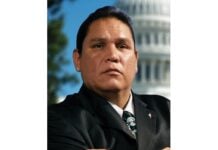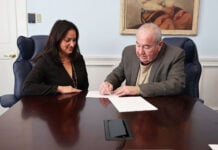by David Kerr
Gambling addiction is a significant issue with devastating consequences for individuals and their families. Self-exclusion programs are designed to help those struggling with this addiction by allowing them to voluntarily ban themselves from gambling venues. These programs are available in many parts of the world, including the U.S., the U.K., Canada, Australia, and South Africa, and are offered by state governments, commercial operations, and tribal gaming operators.
Self-exclusion programs typically involve a patron voluntarily requesting to be placed on a list that prohibits them from entering participating gambling establishments or accessing online gambling platforms. It often also prevents them from receiving direct mail and other promotional marketing material that might cause them to violate their banned status. The self-exclusion process usually requires the patron to complete a form and provide identification. In some cases, a photograph is also taken.
The terms of self-exclusion vary by jurisdiction, with options ranging from a few months to several years, and in some cases, even a lifetime ban. During the exclusion period, if the individual attempts to enter a prohibited venue, they may be removed, face trespassing charges, and forfeit any winnings.
Self-exclusion programs serve several important purposes. They create a physical and legal barrier between the individual and gambling activity, reducing the temptation to gamble. The process of self-exclusion can prompt individuals to acknowledge their problem gambling behavior and seek further help. These programs demonstrate the gambling industry’s commitment to responsible gambling and the well-being of its customers. Self-exclusion can be a part of a broader treatment plan, giving the individual space to address their addiction through counseling or support groups.
Current research varies on the success rate of “recovery.” Part of this is due to the fact that, in the study of gambling disorders, there is a lack of a universally accepted definition of “recovery.” Some studies cite a success rate of only 20% to 50%. Other research studies cite a recovery rate of 60% to 80%.
Among the factors influencing recovery, motivation, commitment, and a powerful desire to change unhealthy behavior are crucial to the recovery process. Support systems such as family, friends, and support groups play a significant role in the rate of recovery, as does access and use of treatments such as cognitive behavioral therapy. These factors are important. Gambling addiction recovery can also be more challenging when there are co-occurring mental health disorders such as depression and anxiety, and treatment of such disorders can improve recovery outcomes for problem gamblers. Early intervention and seeking help at the first signs of a problem are associated with better outcomes. One study suggests individuals who take immediate preventive measures are 40% more likely to maintain long-term abstinence.
The question of whether to allow individuals to cancel their self-exclusion status is complex and controversial. On one hand, some argue that individuals should have the right to make their own decisions, including the decision to resume gambling. If an individual has undergone successful treatment and demonstrated a sustained period of recovery, they may be able to manage their gambling responsibly.
On the other hand, there are strong arguments against allowing cancellation. Gambling addiction is a chronic relapsing condition. Achieving long-term remission is challenging. One study indicated that only about 10% of gambling addicts remain free from their addiction long-term. Canceling self-exclusions significantly increases the risk of relapse, even after a period of abstinence or recovery. Individuals with gambling addiction may not be able to make rational decisions about their gambling behavior, even if they believe they are in control. Allowing easy cancellation of self-exclusions could undermine the effectiveness of self-exclusion programs and discourage individuals from using them. Relapses can lead to severe financial, emotional, and social consequences, not only for the individual, but also for their families.
Current practices regarding the cancellation of self-exclusion vary across jurisdictions. Some jurisdictions may allow individuals to apply for removal from the self-exclusion list after a certain period, often requiring them to demonstrate that they have received treatment or counseling. Others have stricter policies, with lifetime bans being truly permanent. Another concern may be the lack of coordination across jurisdictions when it comes to exclusions. If a person is excluded from one casino, but not nearby tribal or commercial properties, the effect of self-exclusion may not be as effective.
When considering whether to allow cancellation, several factors should be taken into account:
- Length of Exclusion: The original duration of the self-exclusion period and number of violations of their self-exclusion.
- Evidence of Treatment: Whether the individual has participated in and completed a recognized treatment program.
- Assessment of Risk: A thorough assessment of the individual’s current risk of relapse.
- Support Systems: The presence of strong support systems, such as family, friends, or support groups.
- Program Guidelines: The specific rules and regulations of the self-exclusion program.
Self-exclusion programs are a valuable tool for helping individuals with gambling addiction. The decision to allow the cancellation of self-exclusion status involves balancing individual autonomy with the need to protect vulnerable individuals from the potentially devastating consequences of relapse. It is crucial to have clear policies and procedures in place, based on research and best practices, to ensure that these programs are effective and that individuals receive the support they need. Relapse is a significant challenge. Some studies report high relapse rates, e.g., over 70% of those who seek treatment may relapse, while others cite that 90% of problem gamblers experience a relapse.
David Kerr is a Compliance Inspector with the Pala Gaming Commission. He can be reached by calling (858) 254-8895 or email [email protected].


















































